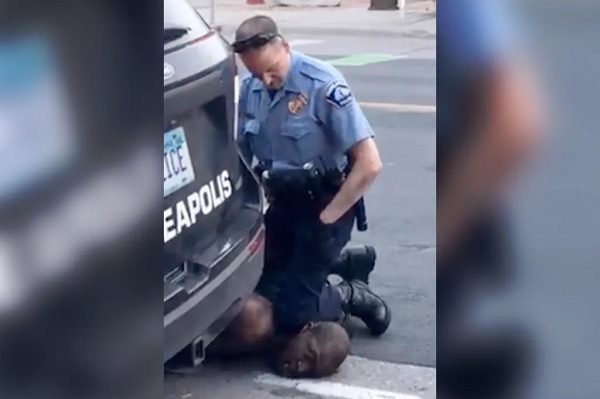
Attorney Scott Pilutik wrestles with the news of the day, from a lawyerly perspective…
The George Floyd video is seriously disturbing and I imagine there will be a murder charge forthcoming, either from Minnesota or the Department of Justice.
For police officers acting under the color of law it’s been next to impossible, historically, no matter what the officer did, to bring a successful prosecution, but perhaps this will break through impunity’s ceiling.
I’m having a hard time imagining the arresting officer’s legal defense, given the extended, multiple video angles, repeated pleas by Floyd that he couldn’t breathe, other officers telling Floyd to get up, Floyd responding that he couldn’t…
There’s also the seeming lack of exigency. The exchanges between Floyd and the officers were practically conversational. There’s no “heat of the moment” element available to the arresting officer that I could see, which juries often find useful to find reasonable doubt.
About ten months ago the DOJ declined to prosecute the arresting officer in Eric Garner’s death (Daniel Pantaleo) and the DOJ’s Richard Donoghue explained why, citing lack of willfulness.
While willfulness may be inferred from blatantly wrongful conduct, such as a gratuitous kick to the head, an officer’s mistake, fear, misperception, or even poor judgment does not constitute willful conduct under federal criminal civil rights law.
Now it’s debatable whether Pantaleo would have met that standard, but prosecutors don’t like losing and don’t like bringing charges against law enforcement given how they’re usually on the same team. And prosecutors know that juries afford law enforcement extraordinary deference.
But on their face, the circumstances of George Floyd’s death are distinguishable from Eric Garner’s death and point toward the DOJ or Minnesota bringing a prosecution. The arresting officer’s conduct would appear to meet Minnesota’s second degree murder threshold (intent, no premeditation). “Mistake, fear, and misperception” don’t appear to be mitigating factors, and this transcends mere poor judgment. If Minnesota and the DOJ pass, they’ll have to come up with some pretty contorted reasoning as to why.






